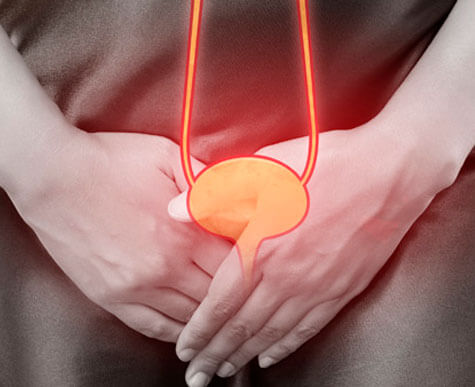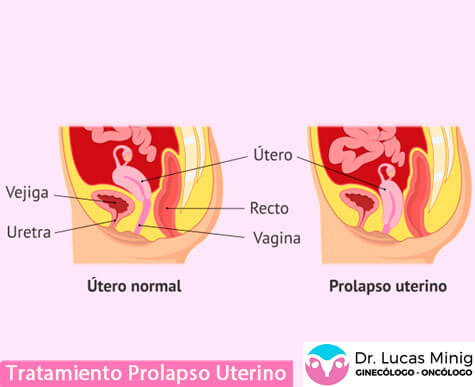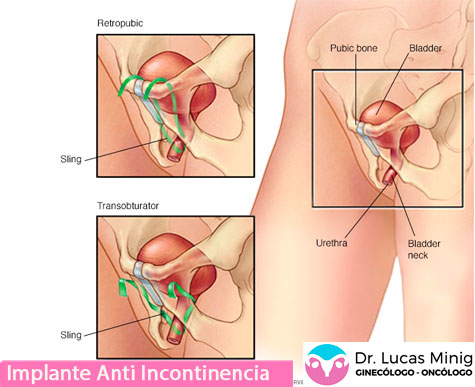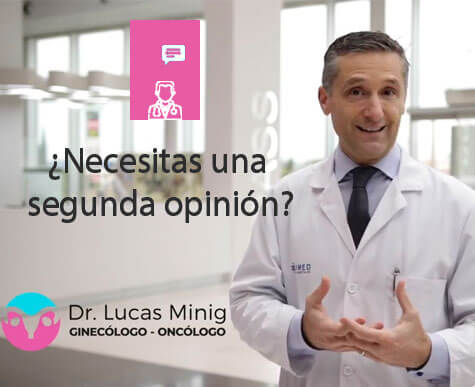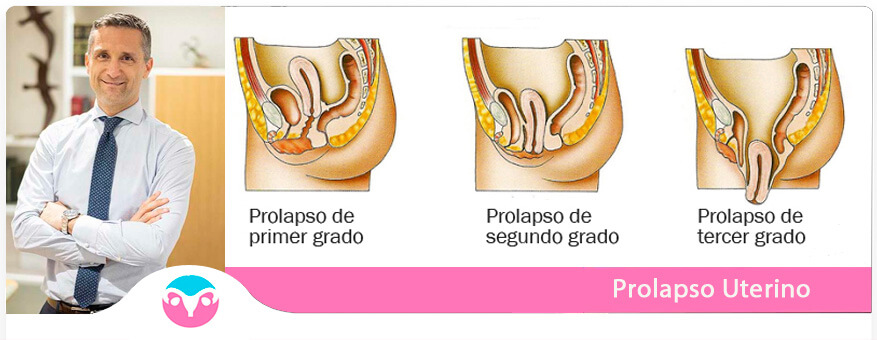
Treatment Options For Uterine Prolapse
What does a Uterine Prolapse mean?
Uterine prolapse or also known as genital prolapse or pelvic organ prolapse (POP) occurs when the muscles that support the pelvic organs, the womb (uterus), and/or the bladder, and/or the rectum drop and put pressure on the vaginal area.
Normally, supporting ligaments and other connective tissues hold the uterus in place within your pelvic capacity. If these support structures are weakened, the uterus will slip into the vagina. As a consequence, the vagina also slides down and can turn. This downward movement of the uterus is called uterine prolapse.
Uterine prolapse can affect women of any age. However, it usually affects postmenopausal women who have had one or more vaginal deliveries.
Organs that can prolapse are:
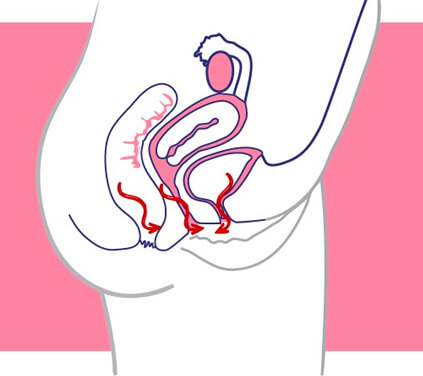
What Are the Symptoms of Uterine Prolapse or Genital Prolapse?
Vaginal prolapse or uterine prolapse may occur due to the following problems or symptoms caused in women:
Do you suffer from uterine prolapse?
Why Do I have Uterine and/or Genital Prolapse?
Muscles, ligaments, and other structures support these organs in the pelvis. If these tissues are weak, the organs fall into the birth canal, which is called prolapse.
This condition is usually more common in women who have had one or more vaginal births, as it can also occur due to:
Other factors that can cause or lead to uterine prolapse include:
Repetitive straining to have a bowel movement due to prolonged constipation can make the problem worse.
Demonstration video of Pelvic Prolapse repair
Request a Second Medical Opinion.
Frequently Asked Questions About Uterine Prolapse
What are the complications of uterine prolapse?
- En general, el prolapso uterino está asociado con el prolapso de otros órganos pélvicos. Podrías tener lo siguiente:
- Prolapso anterior (cistocele). La debilidad del tejido conjuntivo que separa la vejiga y la vagina puede hacer que la vejiga sobresalga en la vagina. El prolapso anterior también se denomina «vejiga prolapsada».
- Prolapso vaginal posterior (rectocele). La debilidad del tejido conjuntivo que separa el recto y la vagina puede hacer que el recto sobresalga en la vagina. Es posible que tengas dificultad para evacuar los intestinos.
El prolapso uterino grave puede desplazar parte del revestimiento vaginal, lo que hace que sobresalga fuera del cuerpo. El tejido vaginal que roza la ropa puede producir llagas en la vagina (úlceras) Rara vez, las llagas pueden infectarse.
How can I prevent it?
To reduce your risk of uterine prolapse, try the following:
- Do Kegel exercisesThese exercises can strengthen your pelvic floor muscles, which is especially important after having a baby.
- Treats and prevents constipation.Drink plenty of fluids and eat high-fiber foods like fruits, vegetables, beans, and whole grains.
- Lift objects correctly and avoid heavy lifting.When lifting objects, use your legs instead of your waist or back.
- Control the cough.Seek treatment for chronic cough or bronchitis, and don’t smoke.
- Avoid weight gain.Talk to your doctor to determine your ideal weight and get advice on weight-loss strategies if you need them.
What are the symptoms of uterine and/or genital prolapse?
- Pressure or heaviness in the pelvis or vagina
- Problems with sexual intercourse
- Leakage of urine or sudden urge to urinate
- Lumbago
- Protrusion of the uterus and cervix into the vaginal opening
- Repeated bladder infections
- Vaginal bleeding
- Increased vaginal discharge
Symptoms are worse when you sit or stand for a long time. Exercising or lifting things can also make symptoms worse.
What additional tests and examinations are necessary?
The doctor will do a pelvic exam. You will be asked to bear down as if you were trying to push out a baby. This shows how much the uterus has dropped.
- Uterine prolapse is mild when the cervix falls to the bottom of the vagina.
- Uterine prolapse is moderate when the cervix drops outside the vaginal opening.
Other conclusions from the pelvic exam may be:
- The bladder and anterior vaginal wall are protruding into the vagina (cystocele).
- The rectum and the back wall of the vagina (rectocele) are bulging into the vagina.
- The urethra and bladder are lower in the pelvis than normal.
Opinions of patients Treated For Uterine Prolapse
Dr. Lucas Minig Uterine / Genital Prolapse Specialist in Valencia, Spain
WE WORK FOR YOUR HEALTH

SPECIALIZED TREATMENTS

CONTROL AND DIAGNOSIS

MAXIMUM TECHNOLOGY

Contact the Uterine Prolapse Specialist
Leave us your data and consultation to offer you personalized medical advice
International Consultation
If you want remote medical care, you can consult
through the following links:
International Appointment
Online Consultation
Whatsapp: + 34 679 112 179


